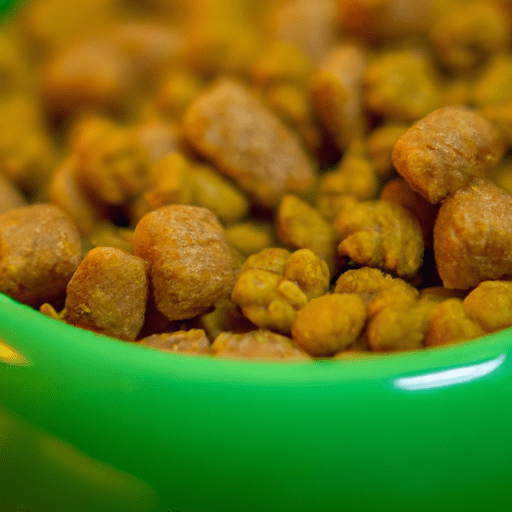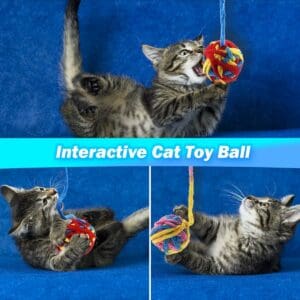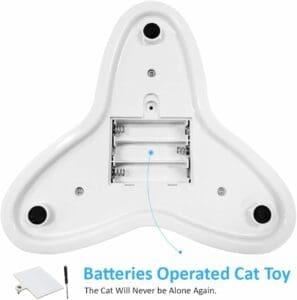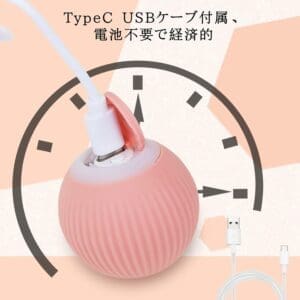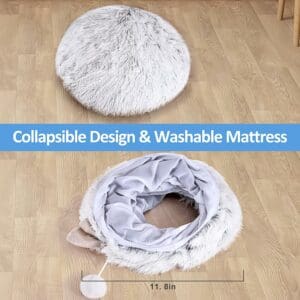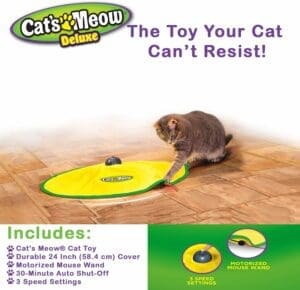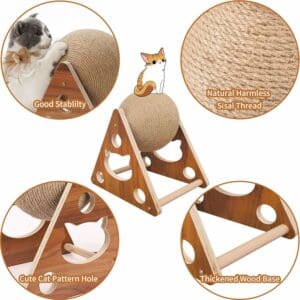Calling all cat lovers! If you’re interested in providing the best care for your furry feline friend, then you’ve come to the right place. In this article, we’ll be discussing an essential aspect of cat care: nutrition. As cat owners, it’s crucial for us to understand the importance of a well-balanced diet for our beloved pets’ optimal health. So, whether you’re a seasoned cat owner or a newbie, stick around as we delve into the world of cat nutrition and explore what you should know to ensure your cat stays healthy and happy.
Importance of Cat Nutrition
Proper nutrition plays a vital role in keeping your feline friend healthy and happy. By providing your cat with a balanced and nutritious diet, you are ensuring that they receive all the essential nutrients they need to thrive. Just like humans, cats require a balanced combination of protein, carbohydrates, fats, vitamins, minerals, and water to maintain optimal health. This article will guide you through the different food groups for cats, help you understand their dietary requirements, and provide feeding guidelines and practices to ensure your furry friend gets the nutrition they need.
Food Groups for Cats
Protein
Protein is a crucial component of a cat’s diet as it helps in the growth, development, and maintenance of their body tissues. Cats are obligate carnivores, meaning they require a higher proportion of animal-based proteins in their diet compared to other animals. High-quality animal proteins, such as chicken, turkey, fish, and beef, provide essential amino acids that cats cannot produce on their own. It is important to choose cat food that lists a high-quality source of animal protein as the first ingredient.
Carbohydrates
While cats are primarily carnivores, they can obtain some benefits from carbohydrates. Carbohydrates provide a source of energy and can also help with digestion. However, it’s important to note that cats have a limited ability to digest carbohydrates, and an excessive amount can lead to weight gain and other health issues. Opt for cat foods that contain easily digestible carbohydrates like sweet potatoes or peas.
Fats
Fats are a concentrated source of energy and play a crucial role in a cat’s diet. They help in the absorption of fat-soluble vitamins, provide essential fatty acids, and contribute to healthy skin and coat. It is important to choose cat foods that contain healthy fats, such as those derived from sources like chicken fat or fish oil. Avoid foods with excessive amounts of unhealthy fats, which can lead to obesity and other health problems.
Vitamins
Vitamins are organic compounds that cats require in small amounts for various bodily functions. Some essential vitamins for cats include vitamin A, vitamin B complex, and vitamin D. These vitamins help with vision, immune function, and the metabolism of carbohydrates, proteins, and fats. A well-balanced cat food should provide the necessary vitamins, but additional supplementation may be required for cats with specific needs or health conditions.
Minerals
Minerals are inorganic compounds that cats require for proper growth, maintenance, and overall health. Calcium and phosphorus are vital for strong bones and teeth, while taurine is essential for healthy heart function and vision. It is crucial to choose cat foods that contain adequate amounts of these minerals to meet your cat’s nutritional needs.
Water
Water is an essential nutrient for cats and is required for various bodily functions. It aids digestion, regulates body temperature, and helps flush out waste products. It is important to ensure that your cat has access to fresh and clean water at all times.
Understanding Cat’s Dietary Requirements
To provide the best nutrition for your cat, it is essential to understand their dietary requirements. Several factors influence a cat’s energy needs, including their age, size, activity level, and overall health. Kittens, for example, require more calories to support their rapid growth and development, while senior cats may need fewer calories to maintain their weight. Consulting with your veterinarian can help determine the specific energy requirements for your cat.
Energy Requirements
Factors influencing energy needs
As mentioned earlier, age, size, activity level, and health condition all play a role in determining a cat’s energy requirements. Kittens, pregnant or nursing cats, and highly active cats will typically require more calories than adult cats with a sedentary lifestyle. It is important to provide an appropriate amount of food to meet your cat’s energy needs and prevent under or overfeeding.
Calculating energy requirements
It can be challenging to determine the exact amount of calories your cat needs, but several factors can help estimate their energy requirements. The general rule of thumb is that adult cats require around 20 calories per pound of body weight to maintain their weight. However, it is always recommended to consult your veterinarian to determine the precise energy requirements for your cat.
Protein Needs
Role of protein in cat’s diet
Protein is an essential macronutrient for cats as it provides the building blocks for their muscles, organs, skin, and coat. It is crucial for growth, repair, and maintenance of a cat’s body tissues. Unlike dogs, cats have a higher requirement for protein due to their unique metabolism. Protein also plays a vital role in supporting the immune system and promoting overall health.
Recommended protein intake
The Association of American Feed Control Officials (AAFCO) recommends a minimum protein content of 26% for adult cats and 30% for kittens. However, many high-quality cat foods offer even higher protein content, which is beneficial for cats. Choosing cat food with a high-quality source of animal-based protein as the primary ingredient will help ensure that your cat’s protein needs are met.
Carbohydrate Needs
Importance of carbohydrates
While cats do not require a high amount of carbohydrates, they can still benefit from a small portion in their diet. Carbohydrates serve as a source of energy and can aid in digestion. Fiber, a type of carbohydrate, is particularly important for maintaining a healthy gastrointestinal tract and preventing hairballs. However, it is crucial to choose cat foods with easily digestible carbohydrates to prevent digestive issues and weight gain.
Types of carbohydrates suitable for cats
When selecting cat foods with carbohydrates, opt for those that contain easily digestible options such as sweet potatoes, peas, or whole grains like rice or oats. These sources of carbohydrates provide energy without excessively contributing to weight gain or digestive problems.
Fat Requirements
The role of fats in a cat’s diet
Fats are a concentrated source of energy and are an essential dietary component for cats. They play a vital role in the absorption of fat-soluble vitamins, provide essential fatty acids, and contribute to healthy skin and coat. Fats are also crucial for maintaining a healthy immune system and promoting proper growth and development.
Healthy vs. unhealthy fats for cats
It is important to choose cat foods that contain healthy fats derived from sources like chicken fat or fish oil. These fats provide omega-3 and omega-6 fatty acids, which have numerous health benefits for cats. However, excessive amounts of unhealthy fats, such as those derived from low-quality oils or processed meats, can lead to obesity and other health issues. Always check the ingredient list to ensure that the fat sources in your cat’s food are of high quality.
Essential Vitamins and Minerals
Vitamin A
Vitamin A is essential for maintaining good vision, promoting a healthy immune system, and supporting the growth and development of cats. It is commonly found in animal-based protein sources and is also added to many cat foods.
Vitamin B complex
The B vitamins, including thiamine, riboflavin, niacin, pyridoxine, and cobalamin, are crucial for various metabolic processes in cats. They help with energy production, nerve function, and the metabolism of carbohydrates, proteins, and fats. Adequate levels of B vitamins are typically found in high-quality cat foods, but additional supplementation may be required for cats with specific health conditions.
Vitamin D
Vitamin D is important for the absorption and regulation of calcium and phosphorus in the body. Adequate levels of vitamin D can be obtained through exposure to sunlight or through high-quality cat foods.
Calcium and Phosphorus
Calcium and phosphorus are essential minerals for maintaining strong bones, teeth, and overall skeletal health in cats. A well-balanced cat food should contain appropriate levels of calcium and phosphorus, but it is important to avoid excessive amounts as imbalances can cause health problems.
Taurine
Taurine is an essential amino acid that is crucial for the overall health of cats. It plays a vital role in maintaining a healthy heart, promoting normal vision, and supporting reproductive function. Taurine is found naturally in animal tissues, so it is important to choose cat foods with high-quality animal protein sources to ensure adequate intake.
Feeding Guidelines and Practices
Selecting a high-quality cat food
Choosing the right cat food is crucial for providing your feline friend with proper nutrition. Look for cat foods that are labeled as “complete and balanced” to ensure they meet the nutritional requirements set by organizations like the AAFCO. Read the ingredient list and look for high-quality animal proteins listed as the first ingredients. Avoid foods that contain excessive fillers, artificial additives, or by-products.
Portion control and feeding frequency
Proper portion control is key to maintaining a healthy weight for your cat. Follow the feeding guidelines provided on the cat food packaging, but keep in mind that individual cats may have unique needs. Monitor your cat’s body condition and adjust their food intake accordingly. It is generally recommended to feed cats smaller, more frequent meals throughout the day to mimic their natural hunting instincts.
Avoiding feeding mistakes
Avoid feeding your cat excessive table scraps or human foods, as they may not provide the necessary nutrients and can lead to obesity or other health issues. Avoid giving treats in excess, as they can contribute to weight gain. Always provide fresh and clean water alongside your cat’s meals, and wash their food and water bowls regularly to prevent the buildup of bacteria.
Special Diets and Dietary Supplements
Kitten nutrition
Kittens have unique nutritional needs to support their rapid growth and development. They require a higher protein and calorie intake compared to adult cats. It is important to choose specially formulated kitten food that provides the necessary nutrients for their growth. Consult with your veterinarian for specific feeding guidelines and recommendations for your kitten.
Senior cat nutrition
As cats age, their dietary needs may change. Senior cats may require fewer calories to prevent weight gain, but still need adequate protein and nutrients to support their aging bodies. Specialized senior cat foods are available that cater to their unique nutritional requirements. Regular veterinary check-ups can help monitor your senior cat’s health and determine if any dietary adjustments are necessary.
Medical conditions requiring special diets
Certain medical conditions, such as kidney disease, urinary tract issues, or food allergies, may require special diets to manage and improve your cat’s health. These diets are formulated to address specific nutritional needs and to help alleviate symptoms or manage underlying conditions. Your veterinarian will be able to provide guidance on the best diet for your cat’s specific medical condition.
Supplement considerations
In most cases, a complete and balanced cat food will provide all the necessary nutrients your cat needs. However, in certain situations or with specific health conditions, supplementation may be recommended. It is important to consult with your veterinarian before introducing any supplements to ensure they are safe and appropriate for your cat’s individual needs.
By understanding the importance of cat nutrition and meeting their dietary requirements, you can help ensure that your feline companion remains healthy, happy, and thriving throughout their life. Remember to choose high-quality cat food, monitor portion sizes, and consult with your veterinarian for personalized feeding guidelines. With proper nutrition, your cat can enjoy a long and fulfilling life by your side.

